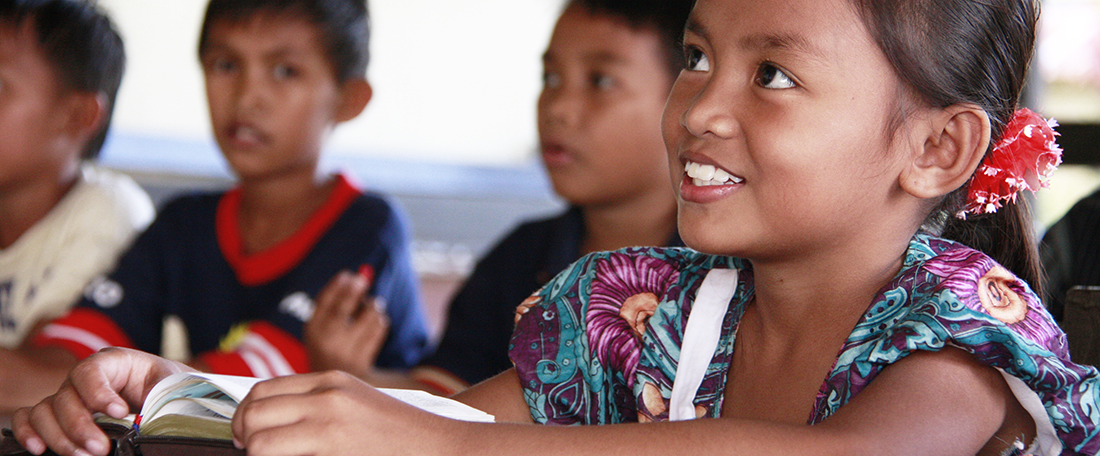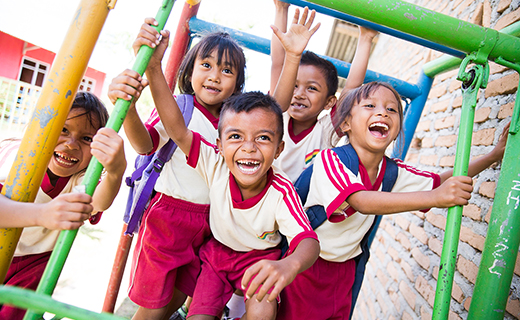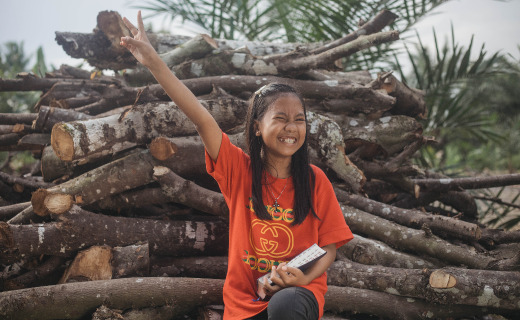Indonesia
Capital City: Jakarta
Population: 255.99 million
Life expectancy: male 69.85 years, female 75.17 years
Population with improved drinking water: urban 94.2%, rural 79.5%
Adult literacy rate: male 96.3%, female 91.5%
Infant mortality rate: 24.29/1,000
Under 5 mortality rate: 29/1000
Religion: Muslim 87.2%, Christian 7%, Roman Catholic 2.9%, Hindu 1.7%, other 0.9% (includes Buddhist and Confucian), unspecified 0.4% (2010 est.)
Percentage living on less than $1.90 a day: 15.90 percent
A little bit of history
Indonesia has a complex past with Dutch colonizers during the early 17th Century and Japanese occupation from 1942 to 1945. Indonesia declared its independence shortly before Japan's surrender, but it wasn’t until 1949 that it gained true independence from the Netherlands.
Indonesia is now the world's third most populous democracy, the world's largest archipelagic state, and the world's largest Muslim-majority nation. In 2002 it was thrown into the spotlight when bombs targeting Western tourists claimed around 200 lives in Bali with an extremist group with links to Al-Qaeda claiming responsibility. Today Islamic extremism still remains a real concern in the region.
How Indonesia makes a living
Indonesia has a growing economy with both agricultural and industrial exports. During the global financial crisis, Indonesia outperformed its regional neighbours and joined China and India as the only G20 members with economic growth.
However, Indonesia still struggles with poverty. A lack of investment in infrastructure alongside corruption has led to an unequal distribution of resources, with many rural impoverished regions forced to face the huge strain of rising costs that come with the growing economy.
Challenges faced by children
Of the 257 million inhabitants in Indonesia, almost one-third are under the age of 18. As the population grows by some three million each year, the predominance of children and young people in Indonesian society is increasingly apparent.
An estimated 2.7 million Indonesian children are involved in some form of child labour - roughly half of these are under the age of 13. While most working children do manage to participate in some form of schooling, time spent engaged in education is limited and impacts their ability to reach their full potential.
Compassion in Indonesia
Compassion's work in Indonesia began in 1968. Compassion also began working in East Indonesia in 2004. Currently, more than 122,600 children participate in more than 567 child development centres.
What sponsored children learn in indonesia
During a typical project day, sponsored children will participate in activities such as ...
- Prayer and devotional time.
- Spiritual lessons. Children sing songs and learn Bible stories. Picture Bibles are given when children enter primary class and full Bibles are given once they enter middle school.
- Break time. Children can play in a safe environment and develop friendships.
- Social lessons. From conflict resolution to developing healthy self-esteem, children who often come from challenging home environments are taught social and personal skills.
- Lunch and social time. Children are given meals once to twice a week. Meals might consist of rice, meat, vegetables and fruit. The children also get a snack. A snack might be cake, bread, or a donut and milk. Typical Indonesian foods that are rich with protein such as "Tempe" and tofu are widely provided for the children.
- Health lessons. Children are taught practical health and hygiene tips.
- Letter writing and career planning. Older children work with project staff to identify their strengths and interests, setting realistic goals for their future.
Additional activities offered by projects in Indonesia:
- Children participate in a sporting activity at least twice a month. They attend a spiritual camp at least once a year. Cultural activities, such as traditional dance, painting, singing, and music, are held at least twice a month, especially for children over 12-years-old.
- For older children, projects offer relevant activities such as computer training, English courses and practical skills such as car repair and sewing.
- Parent meetings are held monthly or bi-monthly. These meetings focus on sharing practical parenting advice and training workshops.





